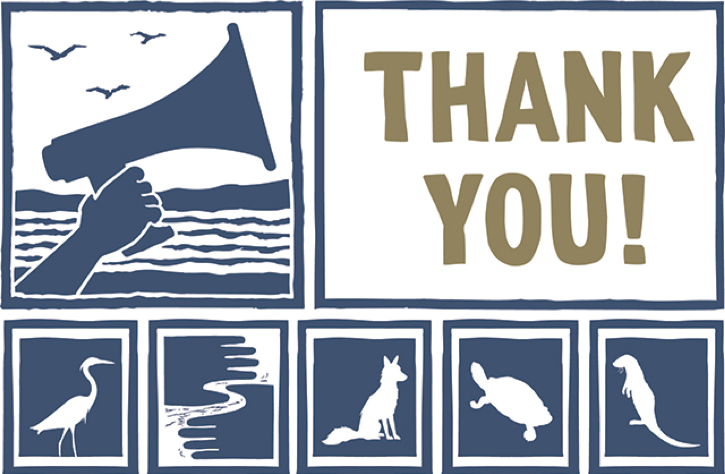What matters to our River Guardians in 2020
As we prepared for the start of the 2020 legislative session (February 11), we wanted to make sure we were in sync with our advocates about the issues we're focusing on at the Capitol.
FMR will pursue four top priorities during the 2020 session. We surveyed our River Guardians to gauge their interest in these chosen issues.
Unsurprisingly, the results show the passion and care we’ve come to expect from our River Guardians. Of those surveyed, 71% said that at least three of the four priorities were very important. And the majority of survey-takers left testimonials about the impact of at least one issue. These statements showcased a wide breadth of experiences and reasons our advocates care so strongly about clean water.
We so appreciate your feedback! Thank you to all who participated. You can be sure we’ll call on you soon to raise your voice for the river.
Read on to learn more about our legislative priorities and what our River Guardians have to say.
Priority #1: Investments in water infrastructure
90% of those surveyed believe this issue is very important.
At FMR, we believe that every Minnesotan deserves access to clean, safe drinking water and surface waters. That’s why we strongly support robust state investment in drinking water, stormwater and wastewater systems across the state. In 2020, we're advocating for bonding for infrastructure projects that protect public health, water quality and economic vitality.
Why does water infrastructure matter? “For our wildlife, first, and our soil health second. People can drink filtered water, but the animals, plants & invertebrates can't. And any food grown by farmers will be contaminated if our groundwater is, but we can't filter our food.” —Pat Olson, River Guardian
Priority #2: Funding for the Conservation Reserve Enhancement Program (CREP)
66% of those surveyed said funding for CREP is very important.
CREP pays farmers and landowners to keep sensitive lands out of agricultural production and establish long-term perennial landcover. From forests to prairies, perennial landcover would improve water quality by preventing agricultural runoff, pollution and sedimentation. Securing bonding for CREP would ensure that it could be funded without raiding the Clean Water Fund.
"As an angler, especially as a fly angler, I have seen the difference CREP has already made and know that CREP deserves its own funding mechanism." —Jane Austin, River Guardian
Priority #3: Expanding the Smart Salt Program
69% of those surveyed believe this issue is very important.
Chloride (salt) is commonly used as a deicer on Minnesota roads, sidewalks and parking lots. Unfortunately, it's also a permanent pollutant. Chloride levels in our waters have reached dangerous levels, threatening aquatic life and our drinking water. This year, FMR is joining a large coalition of organizations working to advance chloride reduction legislation. Together, we support expanding the state’s existing smart salt education program to help educate winter snow and ice managers from across the state to keep sidewalks, roads and parking lots safe without harming our environment.
“Chloride-poisoned lakes and ponds just plain don't de-chloride for decades after stricken. Prevention is the only solution.” —Robin Turner, River Guardian
Priority #4: Passing the Minnesota Groundwater Compact
79% of those surveyed believe this issue is very important.
“Our state water resources are finite and need protection.” —Susan Smith, River Guardian
In order to protect our state's long-term water supply, this legislation is a prohibition on out-of-state groundwater transfer, in response to the recent "Water Train" proposal (which aimed to extract 500 million gallons of water per year from the Mt. Simon-Hinckley aquifer and ship it to Colorado). Out-of-state transfers from the Mt. Simon-Hinckley aquifer would be prohibited without legislative approval, and all other groundwater transfers would require approval from the state legislature and governor.
“This is an issue we will see more of in the future and we need policy now to stem it from evolving into a larger problem.” —Brian Steffek, River Guardian
Join us!
Sign up to be a River Guardian to receive email action alerts when the river needs your voice this legislative session, plus invitations to educational happy hours and other events.
